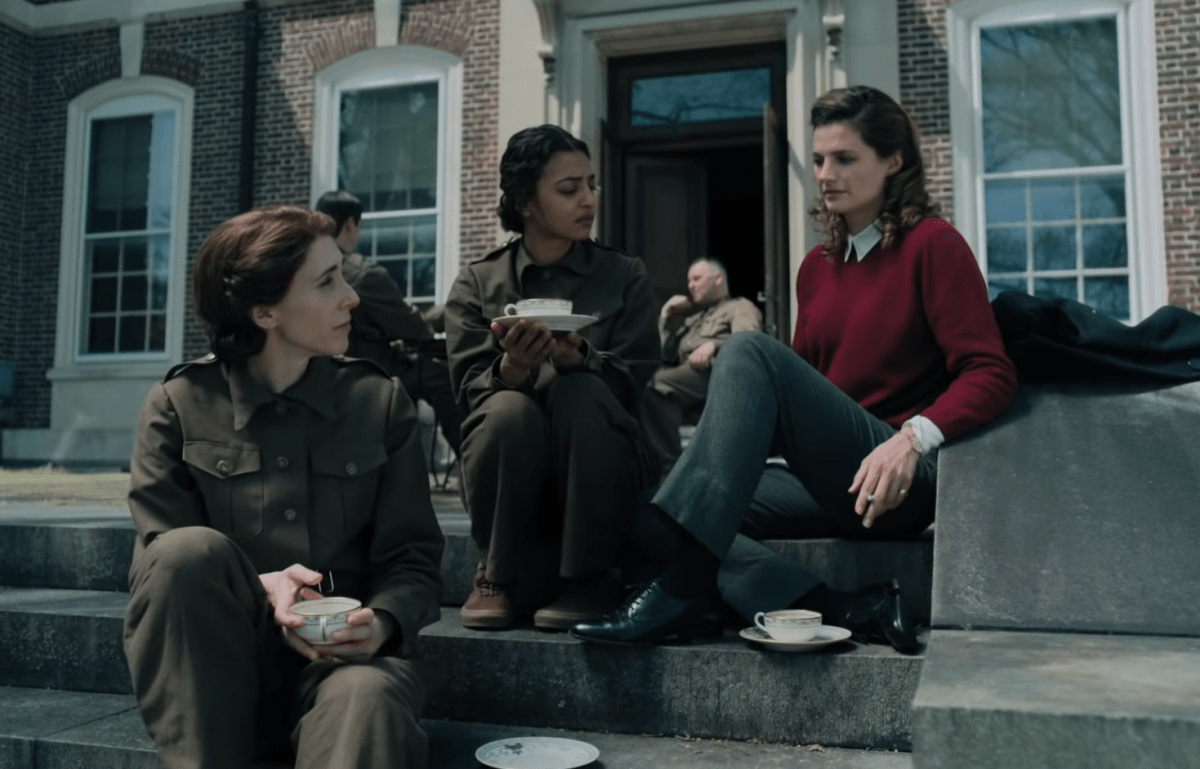Stana Katic plays the role of British intelligence officer Vera Atkins. She starts out the film as the secretary to Colonel Maurice Buckmaster, the leader of the French section of Special Operations. She is denied her application for citizenship status because she is Jewish and is unable to have a rank in the Special Operations because of it, leaving her relegated to acting as a secretary and being unofficial in all the work she puts into the spy program. In the early scenes of the film Atkins convinces Buckmaster to allow her to recruit women to be trained as spies. The training program is in its early stages and is just beginning to understand what needs to be done to operate a successful spy network. As a result the recruits are woefully unprepared when they are sent into occupied territory.
Virginia Hall, played by Sarah Megan Thomas, is an American amputee who has been rejected multiple times from being a diplomat. Atkins invites her to join the program despite her disability and she is chosen to go to France to start a safehouse and resistance network. Thomas’ performance is intense and emotive, creating a believable character who has a need to prove to herself that her usefulness to the world was not taken away when her leg was amputated. She, who often has been alone and rejected, finds a place for herself among other women who are also looking for a chance to serve their country beyond what they have been told was possible for them.
One of these women was Noor Inayat Khan, a British-Indian pacifist who joined the spy network as a wireless operator. Her decision to be trained as a spy was under question because she was a woman, a Muslim and a pacifist.
The story of these three women shows the struggle of a fledgling espionage group that really don’t know what they are doing. Many of their agents are caught and imprisoned because they are untrained or their support system is not established enough to provide help. The end of Khan’s story comes only four months after she is placed in France as a wireless operator. She is caught and her codes compromised, causing other agents to be captured as well. She refuses to talk and goes to her death with the word “liberte” on her lips.
Hall and Atkins use her capture as a catalyst for changing the way the network is run. Hall goes back under cover in France even though her cover has been blown and the Nazi’s are searching for her. The department uses her advice to create smaller networks that are less likely to be compromised and make the spy system much more effective. Atkins finally puts her foot down and demands to be recognized for the work she does, requesting citizenship and a proper rank. She is given them and continues to work to keep the spy network going.
A Call to Spy is an engaging, heartfelt film that explores successful womanhood and how differences can also be bonds that tie us together. This female written, directed and produced film engages with broad topics of disability, religion, ethnicity and gender discrimination while being grounded in personal stories of amazing, brave women who felt a strong sense of duty and did what they could fulfill it.




 RSS Feed
RSS Feed
